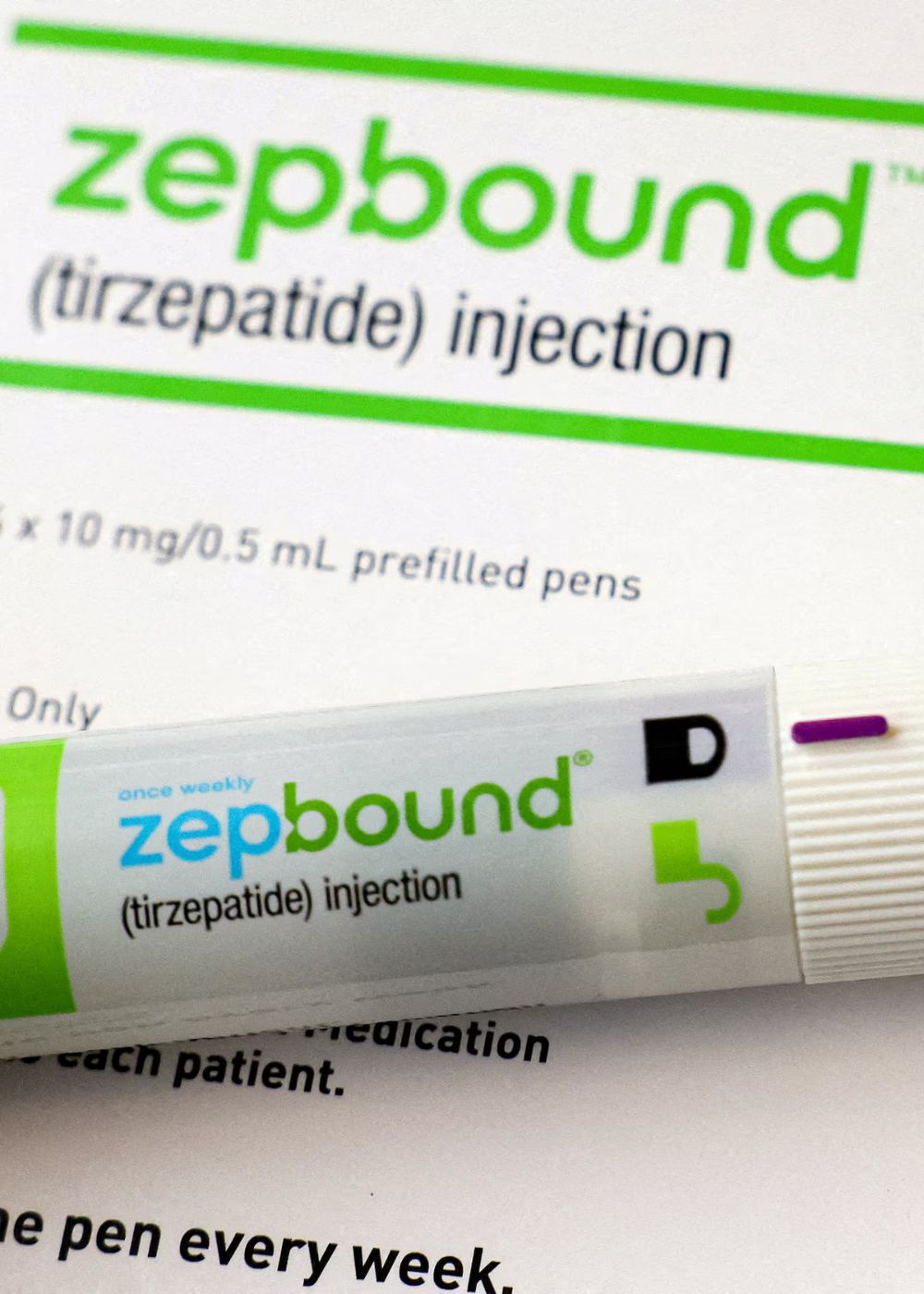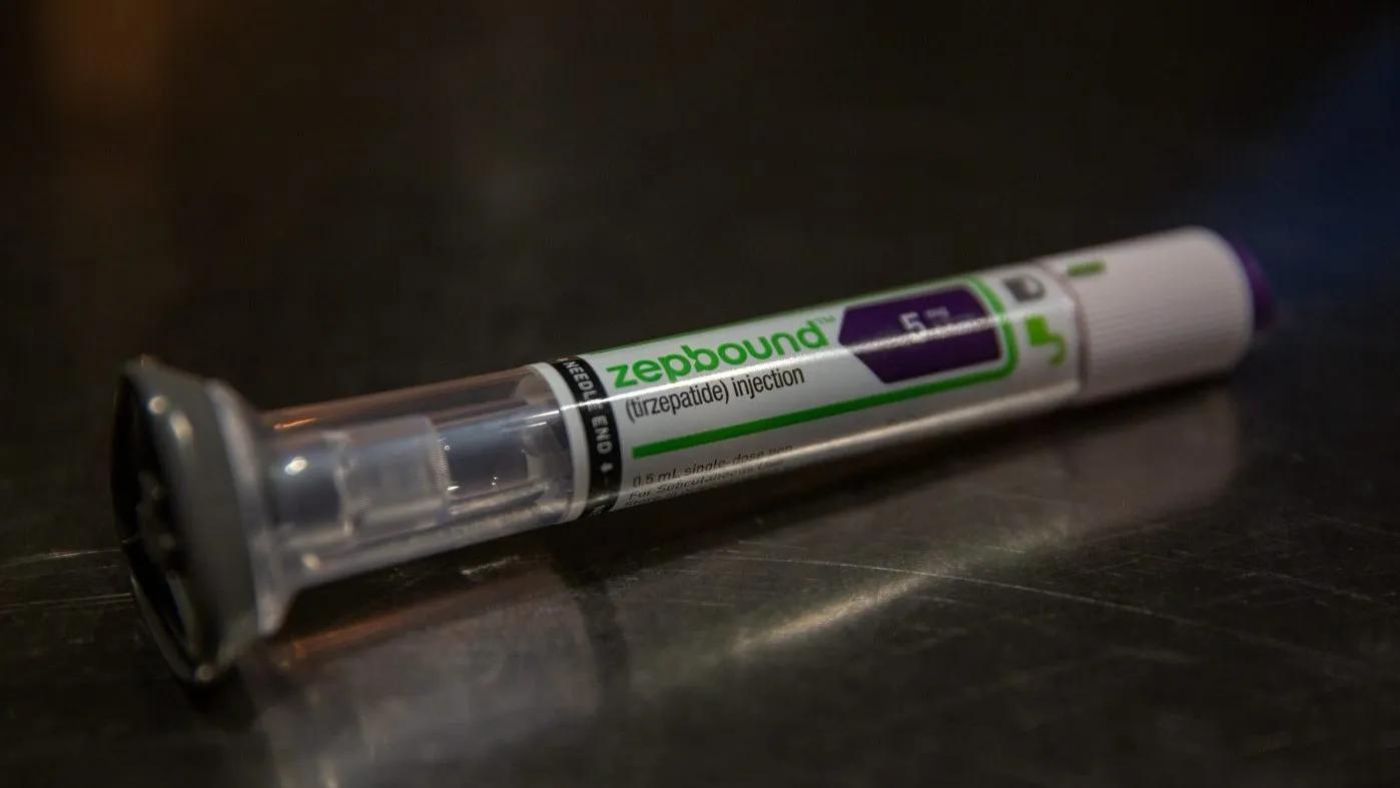Eli Lilly announced on Wednesday that its widely popular weight loss drug, Zepbound, has shown potential in treating patients with the most common sleep-related breathing disorder in two late-stage clinical trials.
These initial results add to the growing list of potential health benefits from weight loss and diabetes treatments, which have seen a significant increase in demand over the past year despite their high prices and inconsistent insurance coverage.
According to preliminary data from both trials, Zepbound was more effective than a placebo in reducing the severity of obstructive sleep apnea (OSA) in obese patients over a year.
OSA, characterized by interrupted breathing during sleep due to narrowed or blocked airways, is a serious condition.
Eli Lilly plans to present these results at an upcoming medical conference and submit them to the Food and Drug Administration (FDA) and other global regulators by mid-2024.
Eli Lilly had previously announced that the FDA granted Zepbound “fast track designation” for patients with moderate-to-severe OSA and obesity.
This designation ensures expedited review for drugs intended to treat serious or life-threatening conditions and meet an unmet medical need.
Eli Lilly highlighted in a press release that these results offer hope to the estimated 80 million U.S. patients who suffer from OSA.
About 20 million of these individuals have moderate-to-severe forms of the disease, but 85% of OSA cases go undiagnosed, according to the company.
OSA can cause excessive daytime sleepiness and loud snoring and contribute to serious complications such as hypertension, stroke, and heart failure.
Treatment options are limited, often relying on cumbersome and uncomfortable positive airway pressure (PAP) machines to maintain normal breathing.
“Addressing this unmet need head-on is critical, and while there are pharmaceutical treatments for the excessive sleepiness associated with OSA, [Zepbound] has the potential to be the first pharmaceutical treatment for the underlying disease,” said Dr. Jeff Emmick, Eli Lilly’s senior vice president of product development, in the release on Wednesday.

Zepbound has experienced shortages since its U.S. approval for weight management in November. The active ingredient in Zepbound, known as tirzepatide, is also approved under the brand name Mounjaro for diabetes.
While diabetes drugs like Mounjaro are typically covered by insurance, weight loss drugs like Zepbound are not.
However, new data on sleep apnea patients provides Eli Lilly with a “pathway to gaining Medicare Part D coverage for Zepbound,” JPMorgan Chase analyst Chris Schott wrote in a note on Wednesday.
According to new guidance issued in late March, Medicare can cover certain weight loss drugs if they receive FDA approval for an added health benefit.
Currently, Medicare Part D, administered by private insurers, cannot cover these drugs solely for weight loss.
Schott added that the new data offers Eli Lilly a way to increase Zepbound use among men. He suggested that men might be more likely to use a GLP-1 drug like Zepbound for sleep apnea rather than obesity.
Eli Lilly’s Zepbound mimics two naturally produced gut hormones, GLP-1 and GIP.
GLP-1 helps reduce food intake and appetite, while GIP, which also suppresses appetite, may enhance the body’s ability to break down sugar and fat.
The two phase-three trials, named SURMOUNT-OSA, tested Zepbound in two groups of patients. Notably, 70% of participants across the studies were men, according to Eli Lilly.
Researchers specifically measured the reduction in the apnea-hypopnea index (AHI), which records the number of times per hour a person’s breathing shows a restricted or completely blocked airway.
The AHI is used to evaluate the severity of obstructive sleep apnea and the effectiveness of treatments.
In both sub-studies, Zepbound was superior to the placebo in reducing AHI, achieving the main goal of the trials.
The first study evaluated the drug in adults with moderate-to-severe OSA and obesity who were not using PAP therapy.
Those who took Zepbound had an average reduction of 27.4 AHI events per hour after 52 weeks, compared to an average reduction of 4.8 events per hour for the placebo.
Zepbound also met the trial’s secondary goal, leading to an AHI reduction of 55% versus a 5% decrease for the placebo.
The second study tested Zepbound in adults with the same conditions who were on and planned to continue using PAP therapy.
Participants who took Zepbound experienced an average reduction of 30.4 AHI events per hour at 52 weeks, compared to a reduction of 6 events per hour for the placebo.
Zepbound led to an AHI reduction of nearly 63%, versus a more than 6% decrease for the placebo.
The results exceeded Wall Street’s expectations. Investors generally considered a 50% reduction as the benchmark for success in Eli Lilly’s trials. The approximately 60% improvement demonstrates “outsized benefits,” wrote Deutsche Bank analyst James Shin in a note on Wednesday.
Across the two studies, Zepbound helped patients lose around 20% of their weight. However, Eli Lilly noted that men tend to achieve less weight loss than women with therapies like Zepbound.
